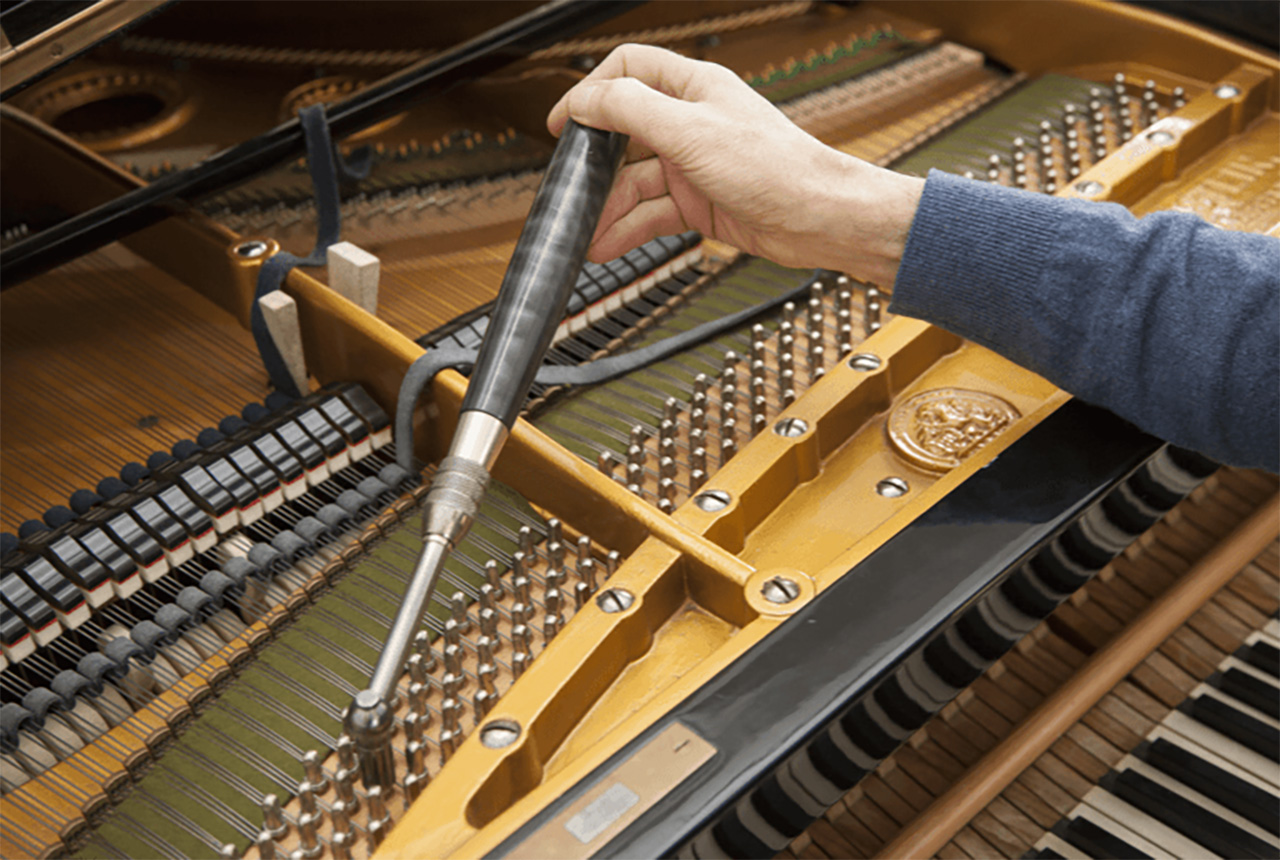
Why Piano Maintenance Matters
A piano is more than an elegant addition to your home—it’s a long-term investment in music and memory. Whether you’re a casual player or a dedicated musician, regular servicing by a trained technician is key to preserving your instrument’s sound quality and lifespan.
Neglecting tuning, cleaning, or regulation can lead to costly repairs and diminished tone. Fortunately, the right care routine and proper climate management will keep your piano sounding its best for generations.
The Impact of the Environment on Piano Performance
Wood and Felt: Sensitive to Climate
Your piano is built from materials like wood, felt, and metal, all of which react to changes in:
- Humidity
- Temperature
- Airflow
These fluctuations can cause:
- Warped soundboards or keys
- Misaligned action mechanisms
- Unstable pitch or tone
💡 Ideal conditions: Keep your piano in a space maintained at 68°F and 42% humidity, away from windows, doors, sunlight, fireplaces, and HVAC vents.
Best Placement for Your Piano
- Keep away from exterior walls and drafty areas
- Avoid direct sun exposure to protect the finish and glue joints
- Use humidity control systems in dry or overly humid climates
General Piano Servicing Recommendations
While every piano is unique, here’s what most technicians and manufacturers suggest:
- First Year:
3–4 tunings to accommodate settling and string tension adjustment - After the First Year:
2 tunings per year is typical, but more may be needed depending on:- Frequency of use
- Environmental changes
- Performance or recording needs
What the Major Piano Manufacturers Recommend
🎹 Baldwin (including Chickering, Wurlitzer)
- First Year: 4 tunings (period of environmental adjustment)
- Afterward: At least two tunings annually
- Tip: Contact the Piano Technicians Guild to find qualified local tuners
Kawai
- Pianos need regular tuning, action regulation, and voicing
- First Year: Minimum of 4 tunings
- Afterward: At least 2 per year, adjusted for usage and environment
Pearl River
- Service frequency depends on climate, usage, and the owner’s needs
- Recommendation: 4 tunings in the first year, then 2 per year after
Samick (also Knabe, Kohler & Campbell, Conover Cable, Bechstein, Sohmer)
- First Year: 2–3 tunings
- Ongoing: At least 2 per year
- Storage Tip: Avoid placing your piano in areas exposed to extreme heat, cold, or direct sunlight
Schimmel
- Use only qualified technicians
- First 1–2 years: 2–3 tunings depending on usage and environment
- More frequent tuning may be needed for regularly played instruments
Steinway & Sons (also Boston, Essex)
- Tuned many times before leaving the factory
- Maintained at A440 pitch (international standard)
- Recommended: 3–4 tunings per year
- Note: Concert pianos are tuned before every performance, and studio pianos multiple times weekly
⚠️ Do not attempt to tune a piano yourself. Always hire a professional with proper tools and training.
Other Piano Service Considerations
What Else Does a Technician Do Besides Tuning?
- Action Regulation: Adjusts the feel and responsiveness of the keys
- Voicing: Balances the tone across all notes
- Inspection: Identifies wear or structural issues early
How Often Should a Lightly Played Piano Be Tuned?
Even pianos that are rarely played need regular tuning:
- Why? The strings stretch and settle over time, and environmental factors still affect the instrument
- Tip: At least once a year, even if barely used
How Do I Know When My Piano Needs Service?
Signs your piano may need attention:
- It sounds noticeably off-pitch or “flat”
- Some keys feel stiff or slow to return
- Notes have uneven tone or lack brightness
- You’ve recently moved the piano or changed its location in your home
Final Thoughts: Service is a Sound Investment
Regular piano servicing:
- Protects your investment
- Keeps your piano sounding beautiful
- Extends its lifespan
- Ensures the best playing experience
Just as you wouldn’t skip oil changes for your car, you shouldn’t skip piano maintenance.
Need Piano Moving or Post-Move Servicing? We Can Help!
At Keyboard Carriers, we don’t just move pianos—we help you protect them long after they’re placed.
We offer:
- Expert piano moving throughout Denver and the surrounding areas
- Climate-controlled storage
- Referrals to certified piano tuners and technicians
- Guidance on after-move care and setup
👉 Contact Keyboard Carriers Today for a quote or ask about our recommended servicing professionals. We’re Denver’s most trusted name in piano moving and protection.
